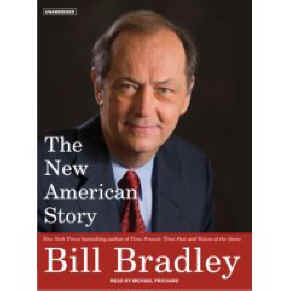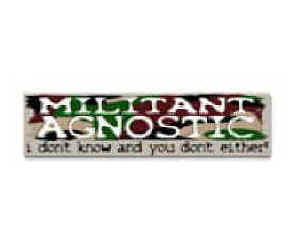Editor’s Note: After
nearly a decade of right-wing extremism, the
electoral landscape for 2008 looks like the perfect confluence of events for a
Democratic (as well as a democratic) comeback. However, some liberals will need to rein in their own extremist
tendencies to take advantage of the situation. Otherwise, the next presidential election
could turn out to be depressingly similar to the previous two.
(In this article, I was glad to have the opportunity to work a phrase from a Grateful Dead lyric
into the final paragraph.)
Election 2008: There’s Still Time to Blow It
The outing of Larry Craig looks like another nail in the GOP’s electoral coffin, but Democrats can’t get overconfident. They still have plenty of time to snatch defeat from the jaws of victory.
Presumptive candidate Hillary Clinton is basically a centrist, but Republicans will inevitably portray her — or whoever ultimately runs — as a fanatical leftist. Regardless of whom they nominate, Democrats should avoid abetting GOP efforts to smear them as ultra-liberal extremists.
In 1972, in an environment eerily similar to today’s, a corrupt administration losing an unpopular war won a landslide victory when the Democrats ran George McGovern, a candidate too far left of center for most mainstream voters. In 2000, a passion for ideological purity caused some liberal Floridians to swallow Ralph Nader’s inane contention that there was no difference between the two parties, providing us with eight years of neocon incompetence.
 |
These days, progressives would be wise to read “The
New American Story,” by former New Jersey senator Bill Bradley. A moderate
Democrat, Bradley describes the “eight perennial curses” liberals should
eschew to prevent Republicans from controlling the national debate. Among these
are wealth bashing and slavish devotion to special interests, such as the trial
lawyers and the teachers unions.
For the 2008 election, the most-dangerous pitfall on Bradley’s list is being seen as soft on defense. For example, Moveon.org helped Republicans when it ran an asinine ad calling David Petraeus “General Betray Us.” This not only shifted the responsibility for the Iraq war from the president to a serving Army officer, it enabled the right-wing media to slander Democratic candidates as anti-military. |
Liberals do often exhibit dovish tendencies. Although pacifism is an admirable personal value that Christians might be expected to affirm, it’s untenable as a political philosophy. If everyone were more peaceful, the world would be a better place, but with America’s militaristic history, our enemies and our defense budget (larger than the rest of the world’s combined), Jesus couldn’t get elected president here, with Gandhi as his running mate, on a platform incorporating the phrase “turn the other cheek.”
| Right-wingers like Bill O’Reilly love to malign liberals as “the hate America crowd.” And leftist icons such as Sean Penn and Danny Glover facilitate this when they embrace tyrants who despise our country, such as Castro or Hugo Chavez. Democrats need to distance themselves from these celebrities, especially when they endorse the insane ramblings of Islamic fanatics, such as Iranian president Ahmadinejad. |
|
 |
Liberals also need to stop making excuses for vile Palestinian groups, such as Hamas and Islamic Jihad. Attempting to justify their atrocities creates suspicions about where progressives’ sympathies lie in the struggle against global terrorism. Complex circumstances often provoke navel-gazing among ultra-leftists who believe that Muslim fanaticism is all our fault, but empathy for Islamo-Fascism will be disastrous in the court of public opinion. |
For example, when O’Reilly asked David Letterman if he wanted America to win in Iraq, the comic’s serious answer was, “I’ll have to think about it.” Someone who’s unsure whether he favors American Marines over Shi’ite militias, al-Qaida suicide bombers and murderous Sunni insurgents makes a poor spokesman for liberalism. Even an obtuse thinker like O’Reilly can hit that one out of the park, and he’d like nothing better than to paint Democrats such as Mrs. Clinton as Jane Fonda.
Extremism also infects the immigration debate. We can’t call ourselves a sovereign nation if we can’t even control our own borders. Hence, when extremists on the left call border security “fascism,” most Americans are rightly offended by such nonsense. Labeling the enforcement of immigration laws (or opposition to bilingual education) as “racism” or “intolerance” — and repeatedly substituting the euphemism “undocumented immigrants” for the more-accurate “illegal aliens” — is sure to alienate a host of moderates at the polls.
 |
Senator Bradley also warned Democrats to shun hostility
toward religion. Liberals should never forsake America’s traditional
separation of church and state, but, in the most-devout country in the developed world,
little good can come from siding too enthusiastically with militant atheists, who often
demonstrate arrogance and intolerance approaching that of militant Christian
fundamentalists. (One even-handed alternative is the sensible bumper-sticker
slogan that I proudly sport on my car: “Militant Agnostic: I don’t know … and you don’t either.”) |
Some liberals also exhibit an unfortunate tendency to equate the horrors of militant Islam with the excesses of Christian fundamentalism. Worse still are those ideologues who attack all religions, except Islam, which they seem to give a pass, based on its anti-Americanism. Liberalism and Islam are polar opposites, and theirs is an absurd position.
Ideological purity often forces Democrats into extremist positions — such as supporting very late-term abortions — that alienate even the more-liberal-minded voters. The revulsion GOP candidate Ron Paul, a doctor and libertarian, felt at seeing a fully developed fetus pulled crying from a woman before being dropped in a bucket is shared by most decent Americans. Proponents of late-trimester abortions who simultaneously oppose the death penalty for even the most-heinous crimes are easy to caricature as fanatical and dogmatic.
For Democrats to make a comeback after eight years of right-wing extremism, they’ll need to recapture the vast middle of the American electorate. In the general election, liberal candidates traditionally move toward the center. This time around, they’d be wise to moderate their positions early, so it isn’t such a long, strange trip.
Click here to return to the Mark Drought home page.
